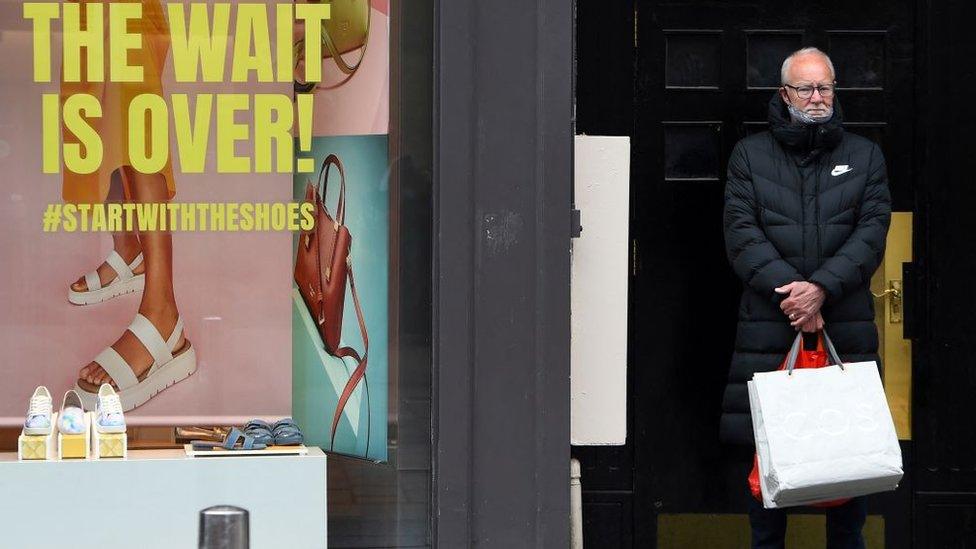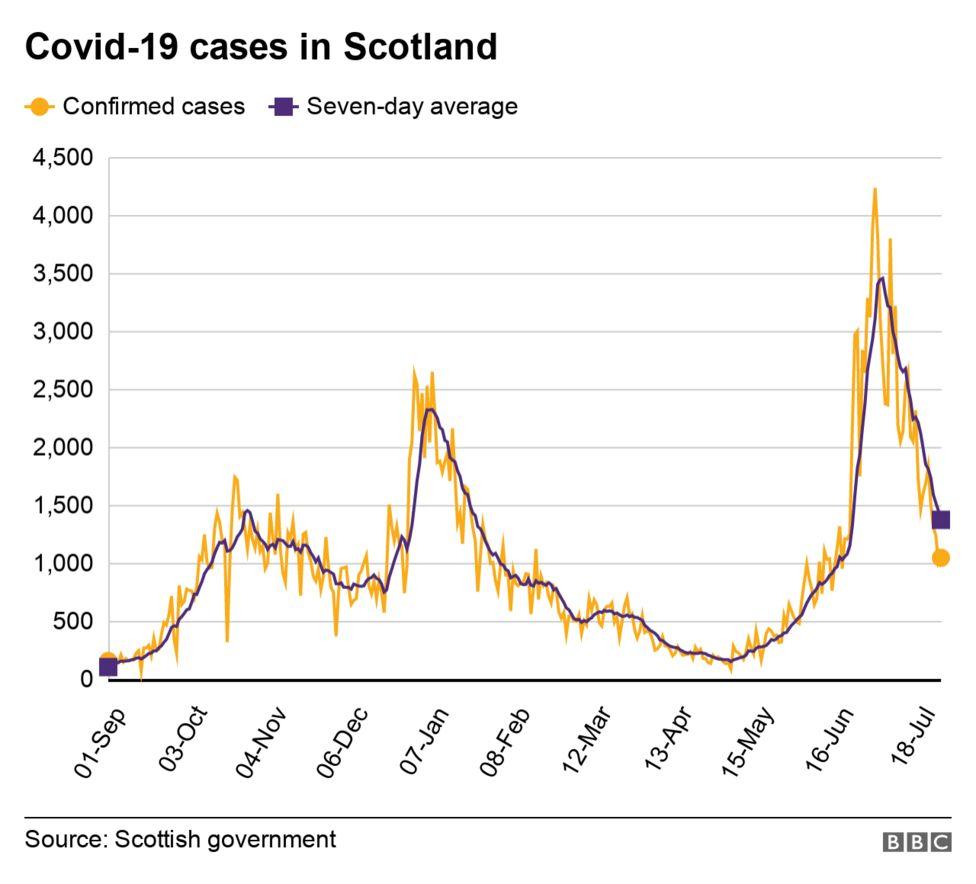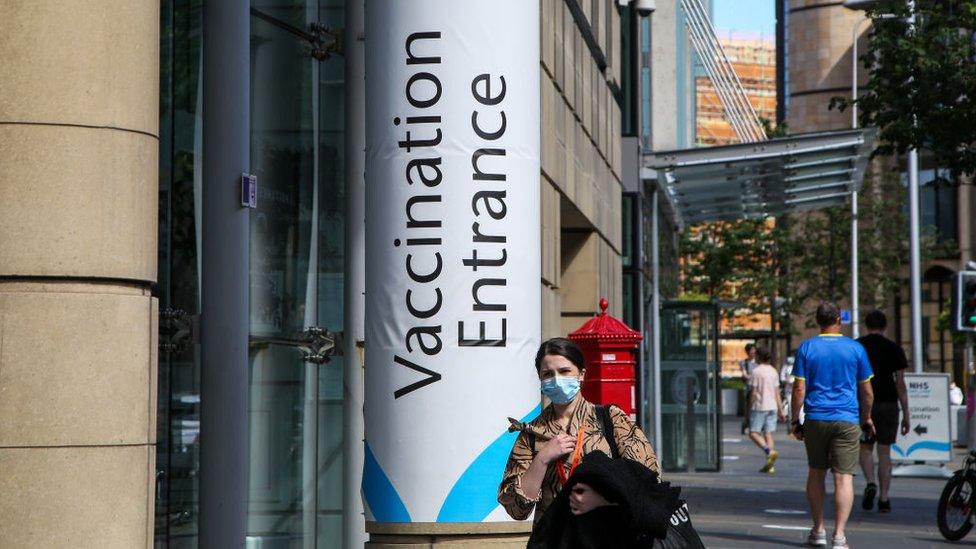Covid in Scotland: Nicola Sturgeon optimistic major restrictions will end
- Published

A decision is due to be made next week on whether the major remaining restriction will be lifted from 9 August
There are "strong grounds for hope" that Scotland will be able to remove most of its remaining Covid rules next month, the first minister has said.
Nicola Sturgeon said the country was in a much better place now than it was earlier this month, when it had the highest virus rate in Europe.
Ms Sturgeon is due to decide next week whether to remove all of the major level zero rules from 9 August.
She told a government briefing that she was optimistic this would happen.
But she stressed that a "sensible degree of continued caution" would be needed to ensure the progress that has been made in recent weeks is not reversed.
Case numbers in Scotland have more than halved over the past three weeks, with a daily average of 1,523 new cases last week compared to 3,305 in the week up to 2 July.
The average test positivity rate has also fallen from more than 10% at the start of the month to 7% - with the 5.6% recorded on Tuesday the lowest daily figure since the middle of June.
There had been five Scottish council areas among the 10 worst Covid hotspots across the UK at the start of July, but Ms Sturgeon said none are currently listed in the top 150.
And more than four million people have now received their first vaccination dose, with 3.1 million having had both doses. This has been credited with limiting the number of people being hospitalised with the virus.

Ms Sturgeon said the uptake figures for the vaccination programme had been "quite extraordinary" despite concern at the apparent reluctance of some younger people to have the jab.
She added: "We have seen some very positive development recently and that certainly gives me grounds for optimism that we will be able to continue our progress out of restrictions.
"That said, we do still need to be cautious. It's good that cases are lower than they were three weeks ago - that comes as a relief to all of us - but they are still nine times higher than they were at the start of May and we know that the Delta variant is significantly more infectious.
"So just as a sensible degree of caution up to now has helped us get case numbers back on a downward path, a sensible degree of continued caution in the period ahead will help avoid sending that progress into reverse."

More than four million people in Scotland have had at least one dose of a vaccine
Ms Sturgeon also encouraged pregnant women to have the vaccine, saying there was "overwhelming" evidence from around the world that it was safe.
And she said Scotland's chief medical officer would be writing to the JCVI about its current advice that the vaccine should only be given to under-18s in the UK if they have underlying health conditions that put them at higher risk from the virus.
The expert group is continuing to assess the situation, with several other European countries now vaccinating all children over the age of 12.
Ms Sturgeon said the issue was more pressing in Scotland because schools are due to return after the summer holidays next month.
She said it would be "very controversial" to go against JCVI advice, but added: "I think it understands how anxious all governments across the UK are to make sure we get this right.
"If we are going to end up in a position of vaccinating young people, we end up there sooner rather than later."
The first minister also said she would set out next week whether secondary pupils and staff will still have to wear face coverings, and whether there will be any changes to the self-isolation rules in schools.
Every area of Scotland is currently under the lowest level zero restrictions of the country's five-tier system, with Ms Sturgeon due to confirm next Tuesday whether the remaining major restrictions - such as nightclubs being closed - will be lifted.
However, she has already signalled that people will have to continue wearing face coverings in indoor settings such as shops.
And the government will not advise an immediate return to full office working on 9 August.